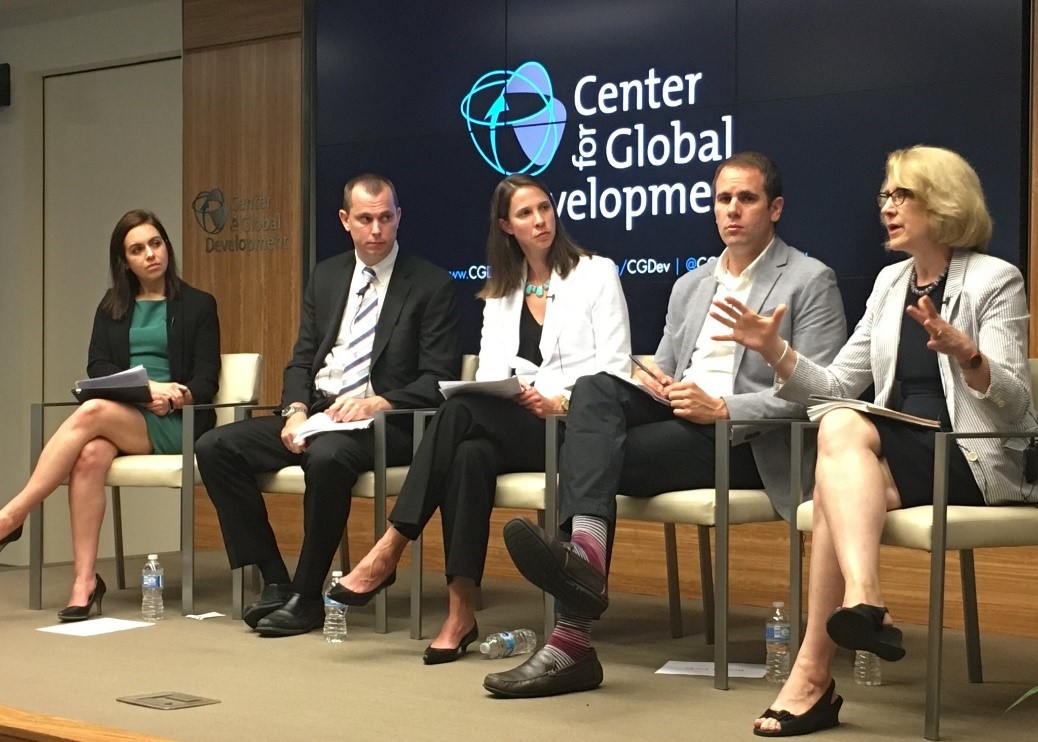A string of legislative efforts this year reveal two things about congressional attitudes toward US foreign assistance that might surprise you: support for aid is often bipartisan, and the seriousness and quality of thinking about aid reform is often very high. Case in point on both fronts is new legislation introduced by US Senators Bob Corker (R-Tenn.) and Chris Coons (D-Del.) that would create the architecture and principles for a policy review and assessment of US contributions to multilateral institutions.
The basic idea is compelling for the US government, which channels over $10 billion to multilateral entities each year. And it should be compelling to other countries and the multilateral entities themselves, since this $10 billion makes the United States in many respects the driver of key decisions in the multilateral system. This system has a strong stake in a thoughtful, evidence-driven approach to US policy engagement, whether in United Nations entities or at the World Bank.
The legislation reflects a good understanding of the multilateral entities themselves as well as earlier efforts by other countries, most notably the UK, to conduct multilateral aid reviews (MARs).
Having called for a US MAR two years ago, it is gratifying to see this legislation come to fruition. My assessment of the idea at the time also points to particular strengths of the Corker-Coons bill as well as some risks.
A key strength of this legislation is that it does not outsource the MAR. It is tempting to set up eminent persons groups to advise policymakers on major policy issues, but such groups, commissions, and panels are too easily ignored. Recognizing the stakes involved in a MAR exercise, with direct implications for budget allocations, the Corker-Coons bill integrates the review into the work of the relevant policymakers in the executive branch and congressional committees. In this way, the results of a MAR stand a much greater chance of directly informing budget and policy decisions.
Any MAR runs a risk that the results may serve to undermine the case for multilateralism. A review is inherently a critical exercise, aimed at identifying relative strengths and weaknesses among a group of multilateral institutions. All institutions under the review will have identified weaknesses, and any such weaknesses can bolster the arguments of those who tend to oppose multilateralism in general.
There are two ways to guard against this risk. One would be to broaden the scope of the review to all US aid, bilateral and multilateral. In this way, the strengths and weaknesses of multilateral institutions can be compared directly to USAID and other bilateral programs. This sounds appealing in principle but would be extremely challenging to implement in practice. In an earlier post, my colleague Charles Kenny points to the challenges of like-to-like comparisons among multilateral institutions, a challenge that is only compounded if you broaden the scope to bilateral programs. It’s a relief, then, the Corker-Coons bill maintains a focus on the MAR.
The other approach would pair the MAR with an ex ante policy commitment to devote a share of US assistance to multilateral channels. With a well-defined budget envelope, the MAR can be appropriately focused on relative funding allocations among multilateral institutions without as much worry that the exercise will lead to an erosion of the multilateral share of US assistance.
Making such a commitment, which has echoes of the international “0.7 percent” aid commitment long rejected by the United States, would be no easy task politically, so I understand why the legislation does not embrace the concept. But I do worry, particularly in the current political environment, that any critical assessments, even honest and careful ones, can be misused by political actors who do not embrace the principles of multilateralism in the way that I know Senators Corker and Coons do.
And here we come to the greatest question about this bill. It is encouraging to see such strong intellectual leadership coming from the Hill on the details of US foreign assistance. But as the legislation itself recognizes, leadership on a MAR must ultimately come from the executive branch. Unfortunately, very little from the past nine months reassures me that this administration would approach a MAR as a means to strengthen multilateralism, rather than a way to walk away from longstanding multilateral partners. Senators Corker and Coons have written a strong congressional oversight role into the MAR process, and if the MAR becomes a reality, I am reassured by the prospect that they and the other co-sponsors of the bill will exercise that oversight aggressively.
CGD blog posts reflect the views of the authors, drawing on prior research and experience in their areas of expertise.
CGD is a nonpartisan, independent organization and does not take institutional positions.





